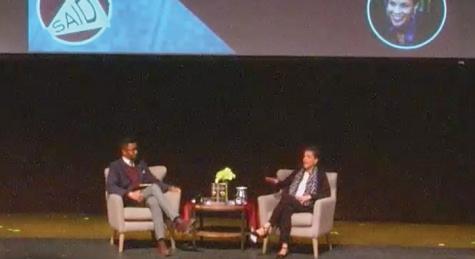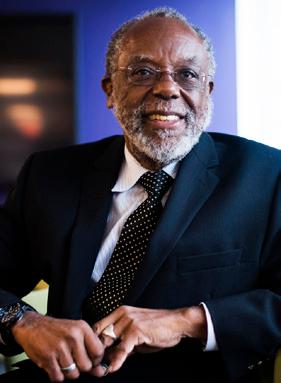A CLOSER LOOK >>>
Humanities Center Fellow 2019-2020 “Authority and Subversion”
Misdirected Rage: The Anti-Immigrant Response to Co-Colonialism and Capitalism in Myanmar and the Origins of Burmese Islamophobia, 1930-1947 MATTHEW BOWSER
Ph.D. Candidate, Department of History, College of Social Sciences and Humanities
YEAR IN REVIEW 2019–2020
I decided to pursue my PhD in History because I wanted to understand, from a global context, how ideas of race and racism become ingrained in modern societies. These interests drew me to work with Professor Heather Streets-Salter at Northeastern University, whose work has primarily focused on race and colonial rule in the British Empire in South and Southeast Asia. Following her example, I wanted to explore the development of ideas of race and racism — and their connection to justifying and upholding power, domination, and inequality — through a colonialera case study in southern Asia.
28
Sadly, in 2016, my subject came to me when the Burmese military began to perpetrate the Rohingya genocide in Burma/Myanmar, an ongoing atrocity that stands as one of the worst human rights violations of the twenty-first century. I undertook the project of looking at colonial Burma and the political movements that surrounded and shaped its decolonization from British rule. I found that a Burmese fascist movement had intentionally associated Indian migrants, the religion of Islam, and Burmese Muslims like the Rohingya into a racialized category in order to create a political scapegoat for Burmese poverty, unemployment, and economic collapse in the 1930s. Although the ideas of this movement were initially not widely accepted, by the late 1930s and early 1940s as British power in Asia began to slip away, the British worked with the fascists, assisted them into power, and used them to eliminate the much more threatening leftists, leading to a Burmese politics where these fascist ideas and the racial scapegoating of Indians and Muslims dominated. My intervention has significant implications for history and understanding of the present: most notably, that the
NORTHEASTERN UNIVERSITY HUMANITIES CENTER
“containment” policies of the United States during the Cold War, which preferred rightwing nationalist over left-wing governments in the Global South, were merely a continuation of European colonial policies. Racism in the Global South was often amplified by Western imperialism for its own ends. My experiences in the archives in London, Yangon, and New Delhi and the data I gathered there were of course critical to leading me to my conclusions. But much of the interpretative work and my understanding of its most crucial contributions to my field came from my experience sharing my writingin-progress with the scholars in the Humanities Center fellowship cohort. Scholars from a range of fields, the fellows gave me a broad perspective on my work and a great deal of constructive criticism. I saw the story I was telling through the eyes of political scientists, sociologists, literary scholars, and even a chemist, who pushed me to define precisely what my intervention was and its importance to a wider readership. This interdisciplinary exchange was reinforced by the opportunities I had to critique the work of my colleagues as a representative historian. I developed a practice of inquiry and strategic analysis from multiple disciplinary avenues. I completed a dissertation about the ongoing murderous consequences of racism across the world — and the surprising motives for perpetuating racism — at a moment when racial injustice was in the daily headlines at home. In our conversations about our own projects, I saw the unique value in the great variety of expertise that my colleagues in the humanities and social sciences bring to the urgent concerns of our time and place.











